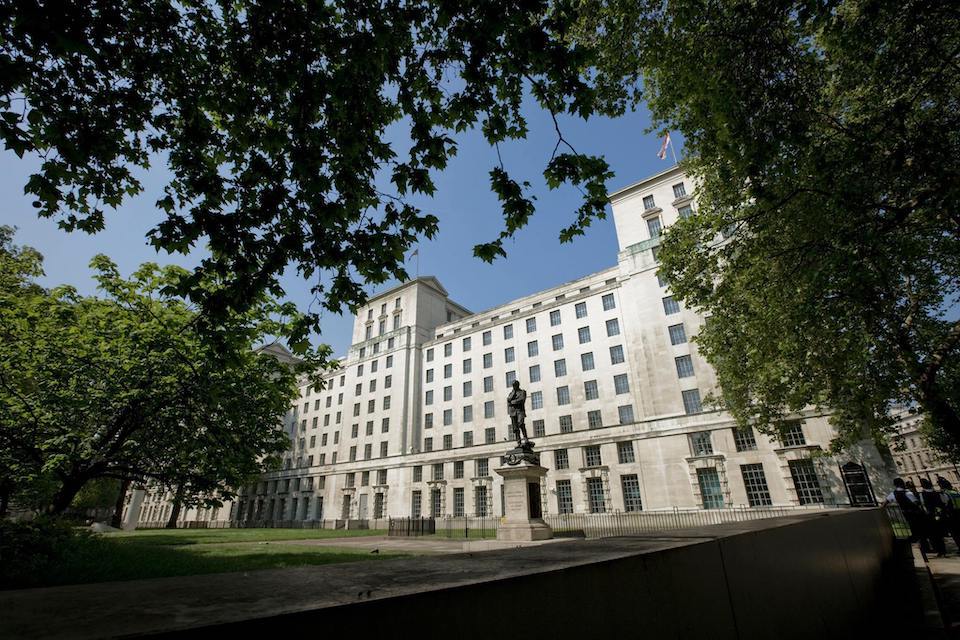- Defence Secretary to co-chair inaugural Defence Industrial Joint Council meeting at Hadean’s London headquarters.
- Council members include primes, tech companies, small and medium enterprises (SMEs), trade unions and investors, bringing diverse defence industry expertise from all across the UK to the heart of defence decision-making.
- Focus on delivering the Government’s Plan for Change by driving jobs and prosperity through a new partnership with industry and driving procurement reforms, marking start of London Tech Week and following launch of the Strategic Defence Review.
The UK’s drive to improve warfighting readiness and turbocharge defence innovation will be the focus of the first ever meeting of the Government’s new Defence Industrial Joint Council (DIJC) today – bringing together Ministers and defence firms of all sizes with trade unions and investors.
Co-chaired by the Secretary of State for Defence, John Healey and Dr. Charles Woodburn, Chief Executive Officer at BAE Systems, the meeting comes at a significant moment for defence, following the publication of the Government’s Strategic Defence Review and in the lead-up to the Defence Industrial Strategy’s publication this summer.
Industry, innovators and investors will benefit from the new partnership with UK Defence, enabling better decision-making and communication between the MOD and its industry partners, boosting British jobs and national security, underpinning the Government’s Plan for Change.
This comes as the Prime Minister made the historic commitment to increase defence spending to 2.5% of UK GDP by April 2027, recognising the critical importance of military readiness in an era of heightened global uncertainty.
Closer collaboration with the defence industry was a key focus of the Strategic Defence Review, which saw the UK committing to
- Investing £6bn in munitions this parliament, including £1.5bn in an “always on” pipeline for munitions and building at least 6 new energetics and munitions factories in the UK, generating over 1,000 jobs and boosting export potential.
- Establishing UK Defence Innovation with £400m to fund and grow UK based companies.
- Creating a new Defence Exports Office in the Ministry of Defence to drive exports to our allies and growth at home.
- Introducing radical new reforms to speed up defence procurement.
Defence Secretary John Healey MP said
National security is at the heart of our Plan for Change and is essential for economic security. We are sending a signal to industry and to our adversaries with a strong UK defence sector we will make Britain secure at home and strong abroad.
It is an honour to co-chair the inaugural meeting of the Defence Industrial Joint Council, through which we can forge a new and improved partnership between government and industry, while also bringing trade unions and investors closer to the heart of defence decision-making. I am proud that this council brings together, for the first time, the full range of voices across UK Defence.
UK Defence is open for business and driving defence as an engine for economic growth, boosting British jobs across the UK.
The DIJC replaces the former Defence Suppliers Forum and aims to harness a wider, and more diverse set of defence expertise to shape the future of Britain’s defence manufacturing, supply chain and innovation – including trade union representation alongside SMEs and investors for the first time.
The Council is underpinned by a commitment to continually refresh and widen its membership, to champion new entrants to the defence sector. The diversity of the DIJC’s members reflects the defence sector of the future, a joint endeavour characterised by innovation and efficiency.
The meeting coincides with the first day of London Tech Week, serving as a reminder of the cutting-edge innovation delivered through defence tech year-round and its contribution to keeping the UK safe at home and strong abroad. Innovation as a driver for growth has been recognised by government with a commitment to ringfencing 10% defence budget for investment in novel technologies.
Dr. Charles Woodburn, Chief Executive Officer at BAE Systems said
Today’s meeting of the Defence Industrial Joint Council is an important moment, bringing together defence companies of all sizes, along with trade unions and investors, to support implementation of the Government’s forthcoming Defence Industrial Strategy.
Improved collaboration and communication will enable industry to continue investing in new technologies, facilities and our workforce to create a stronger UK defence industrial base ready to meet evolving military requirements in an increasingly uncertain world.
Innovation can be delivered most efficiently through partnerships between the public and private sectors, exemplified by the latest remotely operated underwater robot developed by the Defence Science and Technology Laboratory (Dstl) with small and medium enterprises. By modifying a commercially available remotely operated vehicle, Dstl and its industry partners have created a prototype which might soon be able to save lives at sea for the Royal Navy and prevent adversaries from sabotaging undersea cables and pipelines.
Background
Members of the DIJC include
- Secretary of State for Defence (DIJC Chair)
- Minister for Defence Procurement and Industry (DIJC Vice Chair)
- Charles Woodburn, BAE Systems (Sector Chair)
- Michael Ord, Chemring (Sector Vice Chair)
- Fiona Murray, NATO Innovation Fund (Sector Vice Chair)
- Kevin Craven, ADS
- Kata Escott, Airbus Defence and Space
- David Lockwood, Babcock
- Gary Smith, GMB Union
- Craig Beddis, Hadean
- Ned Baker, Helsing
- Kerry Baldwin, IQ Capital
- Joanne O’Doherty, Kinsetsu
- Paul Livingston, Lockheed Martin UK
- Andrew Kinniburgh, Make UK
- Nick Sharpe, Modini Limited
- Louis Mosley, Palantir
- Mike Clancy, Prospect Union
- Steve Wadey, QinetiQ
- Tufan Erginbilgic, Rolls-Royce
- Julian David, techUK
- Steve Turner, Unite the Union
- Graham Booth, 2iC

